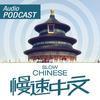#69: 长寿面
#69: Longevity Noodles
长寿面
Longevity noodles
生日 是 人生 中 非常 重要 的 时刻 。
Birthday is a very important moment in life.
以前 , 中国 人 不吃 生日蛋糕 , 而是 吃 一碗 “ 长寿面 ”。
In the past, the Chinese did not eat birthday cakes, but a bowl of "longevity noodles".
因为 面条 又 “ 长 ” 又 “ 瘦 ”, 和 “ 长寿 ” 发音 一样 , 所以 就 叫做 “ 长寿面 ”, 意思 是 希望 过生日 的 人 能够 长命百岁 。
Because noodles are "long" and "thin", they have the same pronunciation as "longevity", so they are called "longevity noodles", which means that people who wish to have a birthday can live a long life.
中国 人 一般 会 在 长寿面 中加 一个 鸡蛋 , 因为 鸡蛋 是 圆 的 , 象征 着 “ 圆满 ”。
Chinese people usually add an egg to the longevity noodle, because the egg is round and symbolizes “consummation”.
也 有人 说 , 鸡蛋 象征 着 生命 。
It is also said that eggs symbolize life.
在 不同 的 地方 , 做 长寿面 的 具体方法 也 都 不 一样 。
长寿面 和 普通 的 面条 不太 一样 , 一般 比较 长 。
Longevity noodles are not the same as ordinary noodles, generally longer.
吃 长寿面 的 时候 , 要 一口气 吃掉 整根 面条 。
When eating longevity noodles, you should eat the whole noodles in one go.
在 把 面条 放进 嘴里 之前 , 不能 咬断 长寿面 。
The longevity noodles cannot be bitten until the noodles are placed in the mouth.
在 两千 一百多年 前 , 在 中国 有 一位 叫 汉武帝 的 皇帝 , 他 很 喜欢 相术 。
More than 2,100 years ago, there was an emperor in China called Emperor Wu of Han, who liked the technique.
也就是说 , 他 相信 人 的 相貌 可以 决定 他们 的 命运 。
In other words, he believes that people's appearance can determine their destiny.
有 一次 , 他 在 和 他 的 大臣 们 聊天 的 时候 说 :“ 书上 说 , 人 的 人 中 —— 也 就是 鼻子 和 嘴巴 中间 的 部分 —— 如果 越长 , 他 的 寿命 也 就 越长 。
On one occasion, when he was chatting with his ministers, he said: "The book says that among the people - that is, the middle part of the nose and mouth - the longer it is, the longer it will last.
” 这时 , 有 一位 大臣 笑了起来 , 说 ,“ 彭祖 活 了 八百年 , 他 的 人 中 得 有 多长 啊 ?
At this time, a minister laughed and said, "Peng Zu lived for eight hundred years. How long is his man?"
” 在座 的 大臣 们 都 笑 了 。
The ministers present laughed.
在 中文 里 ,“ 脸 ” 就是 “ 面 ” 的 意思 。
In Chinese, “face” means “face”.
因为 有 了 这个 传说 , 渐渐 地 , 中国 人 就 有 了 过生日 吃 长寿面 的 习惯 。
Because of this legend, gradually, the Chinese have had the habit of eating longevity noodles on their birthdays.
当然 , 这 只是 一个 有趣 的 传说 。
Of course, this is just an interesting legend.
其实 , 从来 没有 历史学家 证明 , 吃 长寿面 的 传统 来源于 汉武帝 的 故事 。
长寿面 代表 着 中国 人 对 未来 的 美好愿望 。
The longevity surface represents the Chinese people's good wishes for the future.
人们 希望 , 吃 完 一碗 长寿面 , 过生日 的 人 就 可以 活 得 更 长久 。
People hope that after eating a bowl of longevity noodles, people who have a birthday can live longer.

